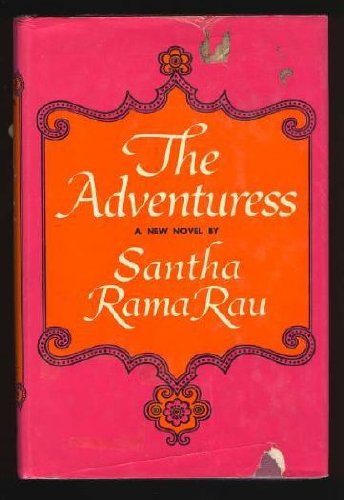In 1950, Santha Rama Rau, an Indian American author published ‘East of Home’, a delightful travelogue to the Orient including China. Ms Rau was an ‘affluent vagabond’ thanks to her diplomat father and Planned Parenthood Federation International president mother Dhanavanthi Rau.
Santha Rau’s China insights are humorous and several witty anecdotes are narrated including her impressions of Shanghai. It is definitely a rare Eastern view (in English) of the Orient itself.
Her novel published by Harper and Row titled The Adventuress is perhaps the first fictional piece I have read, written by someone of Indian descent, on Old Shanghai.

Here’s a review of the book that appeared on Kirkus :
“An entertainment (meant by no means as seriously as Miss Rama Rau’s only other much earlier novel–Remember the House), The Adventuress succeeds on her own decorously false terms, sidestepping the detritus of the war and only once shaken by the possibility of extinction in her determination to survive. The lady with no discernible past (and the ones she invents are outrageous) or future is Kay, first met in Japan enlisting the sympathies of an American who is willing to give her more than she wants. When next seen she’s secured her repatriation to Manila where for a time she attaches herself to an elderly woman and then–via a passport marriage to a pilot–reaches Shanghai. He also takes her more seriously than he should, and having fabricated here, falsified there, the arriviste finally arrives–in a sable coat. One likes her nonetheless and Miss Rama Rau tells her story in a guarded, insinuating and ingratiating fashion. It will be enjoyed.”

Rau’s intimate knowledge of Japan shines through much more than her attempt to catch the full-bodied flavor of Shanghai which is on the brink of change & foreigners including the protagonist, a Filipino, trying to hide her past, are no longer finding it as easy to procure a job by simply asking or asserting their foreign status.
As a diplomat’s daughter, Rau had spent more of her time in Japan than in Shanghai where she was once a transient visitor.
As a reader interested in Shanghai’s past this book makes for a pleasant change where you kind of get a whiff of Old Shanghai, a peek here, a glimpse there but given the fact that Rau was really a passerby and not a Shanghailander one has to set the expectations a tad bit low. The plot line is intriguing and unique, however.
This is one of the very few books (that I have come across till date) written by a female author of Indian origin and that in itself is a big cause for celebration in the world of Indians in Old Shanghai, don’t you think?